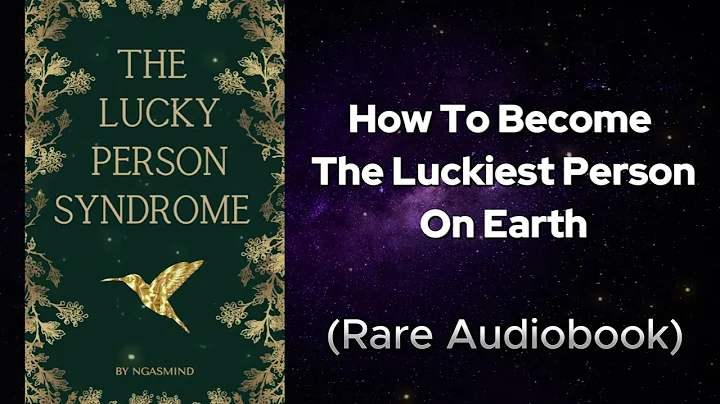01
Pain + reflection = progress
People cannot avoid pain, especially when pursuing ambitious goals. Believe it or not, if you approach pain with the right attitude, you are lucky to feel pain because it will prompt you to find solutions in order to move forward. The first level of meaning of life is "survival".
In the "survival" stage, the most important goal is to pursue economic independence. This is more material-oriented. For example, after China won the Anti-Japanese War in eight years, it was popular at that time that "it was difficult to make a fortune for the country." Many people were pursuing the so-called "five-child education": to have a house, to find a wife, to give birth to a son, to buy a car, Need some money in the bank.
After more than half a century, people's pursuits are now different. For many well-educated people, both men and women, having a son is no longer as important as it once was. If you can develop a habit of automatically reflecting on the pain instead of avoiding it when faced with mental pain, you will be able to learn and evolve quickly. Facing the painful reality of your problems, mistakes, and weaknesses will dramatically increase your effectiveness, and I believe that once you see the benefits of this approach, you won't do it any other way. You just need to make it a habit.
Most people are unwilling to reflect when they are in pain, and their attention will shift once the pain disappears, so it is difficult for them to gain lessons through reflection. If you can reflect when you are in pain (this is not too much to ask), that’s great. It's also valuable if you can remember to reflect on the pain after it's gone. The challenges you face will test you and strengthen you. If you have never experienced failure, it means that you are not working hard to push your limits, and if you are not working hard to push your limits, you cannot maximize your potential. Striving to push your limits sometimes fails and sometimes succeeds, but it all brings benefits. While this approach may not be suitable for everyone, if it is for you, you will become dependent on it, and it will be a wonderful experience. Life will inevitably bring you such tests, and it is up to you whether you are willing to retreat and benefit from failure. If you choose to pursue this often painful path of personal evolution, you will naturally continue to "move up to the next level."
When you reach a higher realm, you will find that you only found the numerous things that surrounded you before to be a headache because of your low realm, but in fact they are not that bad. Most things in life are just "similar situations repeated". The higher your level, the more effectively you can deal with reality and shape outcomes that align with your goals. And what once seemed impossibly complex will become simple.
a. Welcome pain rather than avoid it. If you don't let yourself go, but make it a habit to always work with a certain level of pain, you will evolve faster. That's the way it is. Whenever you encounter something painful, you are at a potentially important point in your life: you can choose between healthy and painful truths or unhealthy but comfortable illusions. The great thing is, if you choose the path to health, pain will quickly turn to joy. Pain is a signal! Just like a person who doesn't exercise starts exercising, developing the habit of enjoying pain and learning from pain will allow people to "step into a new realm."
What I mean by "stepping into the next level" is that you will enjoy the following three things:
● Find, accept, and learn how to deal with your weaknesses;
● Prefer the people around you to be honest with you, not Conceal negative opinions about you;
● Show your true self instead of forcing weaknesses disguised as strengths.
b. Accept tough love. The best thing I want to give others in my life, especially those I love, is the ability to deal with reality in order to achieve your desires.In order to achieve the goal of enhancing their abilities, I will often deny their "wish" because doing so will give them a fighting chance so that they can strengthen themselves and realize their wishes on their own. This can be emotionally difficult to accept, and even though they understand intellectually that they need to be empowered by difficult experiences, if I just give them what they want, it will weaken them and ultimately lead to them needing more help.
Of course, most people would like to have no shortcomings. Our education and real-life experiences make us feel embarrassed about our shortcomings and try to hide them. But people who can truly express themselves are the happiest. If you can be open to your own shortcomings, it will free you up and help you deal with them better. I suggest you not be ashamed of your shortcomings and understand that everyone has shortcomings. Putting your shortcomings on the table will help you kick bad habits, develop good ones, gain real abilities, and have plenty of reasons to stay optimistic. This evolutionary process of creative adaptation and improvement—the continuous search for, achievement, and pursuit of ever bolder goals—applies not just to questions of how individuals and societies move forward. It also applies to adversity, which is inevitable.
You are bound to experience a moment in your life when you fail. You may fail at work, fail at home, lose a loved one, suffer a serious accident or illness, or find that the life you imagined is always out of reach. There will always be some misfortune that strikes you. At that point, you will be in deep pain and may feel like you have lost the strength to move on. However, you almost always have the power—and your ultimate success depends on your ability to recognize this fact, even though it may not seem so at the time.
It is for this reason that many people who experience setbacks, after successfully adapting to the setback, become as happy as before, or even happier, even though the initial setback seemed devastating. The quality of your life will depend on the choices you make during these painful moments. The greater a person's ability to adapt appropriately, the better. No matter what you want to achieve in life, your ability to adapt and move quickly and efficiently on your personal evolution path will determine your success and happiness.
If you do it well, you can change your mental response patterns so that pain becomes something you desire.
02
Consider the consequences of follow-up and follow-up
After realizing the higher-level results brought about by natural evolution, I began to find that if people pay too much attention to the direct results of decisions and ignore the follow-up and follow-up results, it will be difficult for them. Goals. This is because the desirability of immediate results and subsequent results are often opposite, which can lead to major errors in decision-making.
For example, the direct result of exercise is pain and time consumption, which is generally not considered worth pursuing, but the subsequent result is a healthier and more attractive image, which is worth pursuing. Similarly, food that tastes good is often bad for your body, and vice versa. The direct result is often temptation, causing us to lose what we really want, and the direct result is sometimes an obstacle. It's as if nature is categorizing us: Nature throws at us all kinds of hidden choices with good and bad consequences, and punishes those who make decisions with only immediate consequences in mind. And some people choose what they really want, resist temptation, and overcome the pain that may hinder them from achieving their goals. Such people are much more likely to have a successful life.
03Accept results
Most of the time, life will make you make many decisions and give you many opportunities to recover from mistakes, so as long as you handle it well, you can have a wonderful life. Of course, sometimes factors beyond our control can seriously affect our quality of life, such as the environment in which we were born, accidents, and illness. But most of the time, the worst-case scenarios can be reversed if you deal with them in the right way.
For example, a friend of mine hit his head while jumping into a pool and became a quadriplegic. But he approached it the right way and became as happy as anyone else, because happiness can be achieved in many ways.
My point is simple: no matter what situations you encounter in life, if you take responsibility and make good decisions instead of complaining about things you have no control over, you will be more likely to succeed and find happiness. Psychologists call this having an "internal locus of control," and various studies consistently show that people with an "internal locus of control" do better than others. So don't worry about whether you like your situation or not. Life doesn't care what you like. You have to find a way to achieve your desires based on your own desires, and then have the courage to stick to them.
04 Looking down at the machine from a higher level
Human beings have the unique ability to look down from a higher level. This is not only suitable for understanding reality and the cause and effect relationship behind reality, but also for looking down at oneself and the people around them.
I call this ability to transcend one's own and other people's situations and look down on them objectively as "higher level thinking." Higher-level thinking allows you to learn and influence various cause-and-effect relationships in your life, and use these cause-and-effect relationships to get the results you want.
a. Think of yourself as a small machine inside a larger machine, and understand that you have the power to change your machine to achieve better results. You have your goals. The means you use to achieve your goals, I call your machine. It includes design (what must be done) and people (who will do what must be done).
people include you and the people who help you. For example, imagine your goal is a military objective: seize a hilltop from the enemy. You might design a machine that contains two scouts, two snipers, four infantrymen, and so on. While sound design is essential, it's only half the battle.
It is also important to have the right people performing these tasks. In order to complete their respective tasks, they need different characteristics: the scout must run fast, the sniper must shoot accurately. Only then can the machine create the results you're after. By comparing the results you achieve to your goals, you can determine how to improve your machine.
This process of evaluation and improvement is exactly the same as the evolutionary process I described before. This means looking at how you can improve or change the design or people to achieve your goals. To illustrate graphically, this process is a feedback loop, see the figure below.

b. The difference between you as the machine designer and you as the worker in the machine. One of the hardest things for humans to do is to objectively see themselves in their environment (i.e., the machine) and thus become the designer and manager of the machine.
Most people have always seen themselves as workers in robots. If you can see the difference between these two roles, and see that it is far more important to be a good designer and manager of your own life than to be a worker in a machine, you are on the right path. If you want to be successful, as a designer and manager, you must look at yourself as a worker objectively, not to think too highly of yourself, and not to allow yourself to take on tasks that you shouldn't take on.
Most people act based on emotion and only look at what is in front of them, rather than starting from the above-mentioned strategic perspective. Their lives are filled with directionless emotional experiences, drifting with the flow. If you want to look back on your life later in life and feel like you've fulfilled your life's wishes, you shouldn't do this.
c. The biggest mistake most people make is not taking an objective view of themselves and others, which causes them to fall back on their own or other people's weaknesses time and time again. People who do this will not succeed because they are stubborn. If they can overcome this tendency, they can reach their full potential. So higher level thinking is the key to success.
d. Successful people are able to look beyond themselves, see things objectively, and manage things to shape change. They are receptive to other people's perspectives rather than being opinionated.Their ability to view themselves (including their strengths and weaknesses) and others objectively allows them to place the right people in the right roles to achieve their goals. If you learn to do this, you'll find that there's almost nothing you can't achieve. You just have to learn how to face the reality of your situation and use all the resources at your disposal to the fullest. For example, if you, as a designer and manager, find that you, as a worker, cannot do something well, you should fire you, the worker, and find a good replacement, and in the process you must Always act as the designer and manager of your own life.
If you discover that you are not good at something, you should not feel bad about it, but should be happy that you discovered it, because knowing this and dealing with it will increase the likelihood that you will achieve your desires. If you find yourself unable to do your best at everything and feel bad about it, you are being naive. No one can do everything well. Would you let Einstein join your basketball team? Would you look down on Einstein if he didn't dribble and shoot well? Should he be ashamed of this? Think about how many areas Einstein would have been incompetent in, and then think about how much effort he put in to become so good even in the areas where he was unique in the world. Seeing how others work hard and letting others see how you work hard will trigger various self-emotions, such as sympathy, pity, embarrassment, anger, wariness, etc. You need to get over this and stop seeing hard work as a negative.
Most of the best opportunities in a person's life come from hard-working experiences. Hard work is a test of people's creativity and personality, and you should extract the greatest value from these tests. But most people lack the courage to overcome their weaknesses and make the difficult choices that this change requires.
In the final analysis, this can be summarized as the following 5 choices:
1. Don't confuse your wishes with facts.
2. Don't worry about your image, just worry about achieving your goals.
3. Don’t pay too much attention to the immediate results and ignore the subsequent and subsequent results.
4. Don’t let pain get in the way of progress.
5. Don't blame anyone for bad results, look for the reasons within yourself.
Source: Adapted from "Principles" (CITIC Press)




















